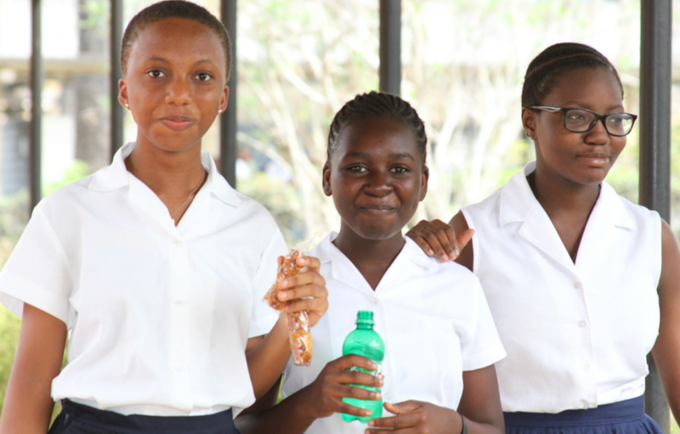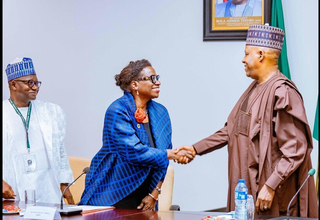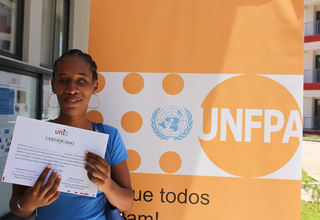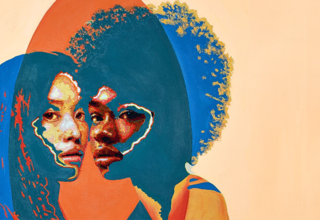The people of West and Central Africa are young – nearly two-thirds haven’t yet celebrated their 24th birthday.
This young population gives us great hope. Its energy and commitment is exactly what we need to build a better future for everyone - but at the same time, it can cause us much fear.
Fear of what these young people are going to become or what choices they will make if they continue to be denied the skills, essential social services and opportunities they need to make the most of their abilities.
Today, young people aged 15 to 24 account for 60 percent of Africa’s unemployed and those who do manage to find work are often employed in the low-paid, often hazardous informal sector.
So many have grown up surrounded by poverty, inequality, conflict and instability, compounded by natural disasters or extreme weather events caused by climate change.
They have not received the education they deserve – about one third of adolescent girls are not in school – and they experience twice the adult unemployment rate.
This upbringing has had a profound effect on how they view their lives, leaving many feeling disillusioned and disenfranchised.
The failure to meet their needs has made them susceptible to radicalisation – or has led them to leave our region altogether, taking their talents and frustrations with them. This is a scenario we cannot afford to let escalate.
Young people are our future and our biggest asset – but only if we can find a way to make them stay to help build their countries. For this, we must make the right investments in their future.
Militant groups such as Boko Haram’s success in recruiting young Nigerians and others across the region show us there is no time to lose.
The group, and others such as MUJAO in Mali, has preyed on disaffection and vulnerability to draw young men and women from all kinds of backgrounds into their fold. Promising loans and money, they have made the most of economic inequalities to tempt them to join.
These groups also make inroads into communities by offering a different leadership to local, often absent, ineffective or corrupt government. In short, they identify all the factors that are frustrating our youngsters and use them to influence how they think.
But it is not too late. We can still draw our young people back if we offer the right choices.
We need to build their trust in governments so that they believe they are listened to and help and empower them to contribute to transforming their communities.
If we fail, they will continue to fall into the hands of radical groups or simply leave. The exodus of young people towards Europe and further afield shows just how desperate they have become. An estimated 80,000 of the people smuggled across the Mediterranean in the past two years have been from sub-Saharan Africa.
So we must find solutions. We must address the socio-cultural milieu that encourages harmful practices and provide girls and women with education so that they can live full and fulfilling lives and play a meaningful part in the development of their societies.
We need to find ways to bring young people and government together to rebuild trust and facilitate communication. And at a local level, community relations need to be strengthened so that the young talk to the old, keeping the lines of communication open, because those communities which have done so have been successful in protecting their youngsters from radicalisation.
We at UNFPA see investment in adolescents and youth as critical to our region’s future. We are working with governments across the Sahel, Manor River, Gulf of Guinea, Congo Basin and Lake Chad Basin to encourage the development of initiatives to help young people make the most of their and their families’ lives.
We are also supporting programmes that are reaching girls to protect them from harmful practices such as child marriage, early pregnancy, female genital mutilation and gender-based violence.
Last year, Burkina Faso launched a National Strategy to end Child Marriage followed this year by Ghana with its National Campaign to End Child Marriage.
Several countries have also passed national legislation against female genital mutilation, including Guinea Bissau, Nigeria and the Islamic Republic of the Gambia.
The African Union has also recognised the potential of our youth and has pledged to put adolescents and youth at the centre of its development agenda.
The Agenda 2063 which projects the “Africa We Want” by 2063 gives us a strong vision of our desired direction and a road map on harnessing the demographic dividend through targeted investments in our young people - to which UNFPA has contributed - will be considered at the ongoing AU summit in Kigali.
The demographic dividend will also be high on the agenda at the Heads of State and Government summits next year.
This all means progress but there is no time to waste. It has been ten years since the adoption of the African Youth Charter promising empowerment and development but 12 States have yet to sign up and out of 42 who signed, four have not ratified the charter. All young people in Africa, regardless of their geographic location, must be entitled to the full range of rights and aspirations enshrined in this Charter.
Because we will only stop this tide of radicalisation, keep our young people home and get the “Africa We Want” if we lower the fertility rate and address the weaknesses in our education and health services – especially for girls and women.
It will require strong, determined governance but the time is now because this commitment to look after our youth will pave the way to a healthier, more prosperous Africa, not just for them, but for everyone.
Mabingue Ngom is the UNFPA Regional Director for West and Central Africa.




